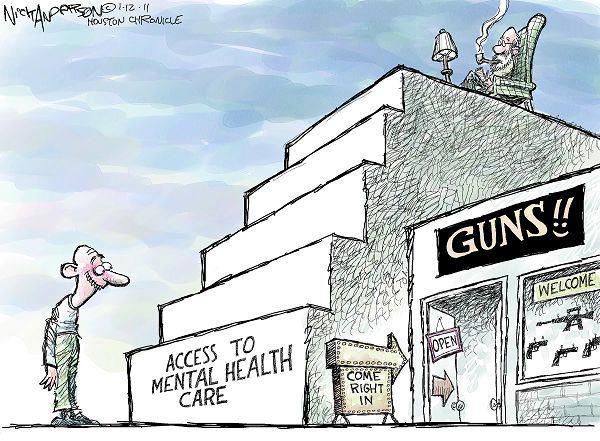This week our nation suffered a tragedy of perhaps unprecedented scale. The age and innocence of the victims leaves us all speechless. While we all try to come to grips with the reality our minds shy away from the pain. Every other instance of similar tragedy in America pales in comparison.
When I heard about the incident yesterday morning my first reaction was “oh god, not another school shooting” and I shunted it aside so I could focus on doing the work I am responsible for. In the evening I finally allowed myself to turn on the television. I could watch the first few minutes with a cap on my emotions, calloused as they are by past experience. 
Then the person on the screen said it was a school that only covered children from Kindergarten to the fourth grade. The information caught me off guard, my mind stopped working.
I broke down and wept uncontrollably, face in my hands and wracked with sobbing. Donna came and put her arm around my shoulders while I slowly brought myself under control again.
There is still too much pain in my mind to allow myself to do more than think past the thought, what that really means. I cannot be the father I need to be if I allow myself to look into that pit. This morning I can sit here and write this, wiping tears out of my eyes as the screen blurs, but soon I will move on and decorate the Christmas tree with my children.
I will not watch the news today, and I recommend you do not either. Perhaps I will stop here in my office to talk here with you a few times, perhaps I will not. There is time to think about this together, and the considered pace of the Moose will allow us the opportunity to do that here in a manner that allows the space needed.
The one thought I will provide is that while we may be prompted to fall into the pattern of past conversations regarding gun control, what value can be found in this incredible loss may be another issue. The mental health of the tragic young man who performed this horrible crime.
It may in fact be true that the incredibly unlikely 180 in American gun laws would reduce the instance of such events, but that is not likely to happen. What is going to happen due to the changes made in American healthcare insurance (if I understand the legislation) is that those with mental health concerns may begin to find help within reach. This is something we as a nation might be able to do, to find some small compensation buried in the astounding price we just paid.
In 2006 a man performed an act as close to this as we have seen. Entering an Amish school, he released his unmanageable pain and wounded five young girls, ended the lives of five others. The Amish community immediately reached out to the family of that man, offering their love and support.
I repost in whole cloth the Wikipedia section on the Amish community’s response. Herein lies the answer, I think:
On the day of the shooting, a grandfather of one of the murdered Amish girls was heard warning some young relatives not to hate the killer, saying, “We must not think evil of this man.”[15] Another Amish father noted, “He had a mother and a wife and a soul and now he’s standing before a just God.”[16] Jack Meyer, a member of the Brethren community living near the Amish in Lancaster County, explained: “I don’t think there’s anybody here that wants to do anything but forgive and not only reach out to those who have suffered a loss in that way but to reach out to the family of the man who committed these acts.”[15]
A Roberts family spokesman said an Amish neighbor comforted the Roberts family hours after the shooting and extended forgiveness to them.[17] Amish community members visited and comforted Roberts’ widow, parents, and parents-in-law. One Amish man held Roberts’ sobbing father in his arms, reportedly for as long as an hour, to comfort him.[18] The Amish have also set up a charitable fund for the family of the shooter.[19] About 30 members of the Amish community attended Roberts’ funeral,[18] and Marie Roberts, the widow of the killer, was one of the few outsiders invited to the funeral of one of the victims.[20]
Marie Roberts wrote an open letter to her Amish neighbors thanking them for their forgiveness, grace, and mercy. She wrote, “Your love for our family has helped to provide the healing we so desperately need. Gifts you’ve given have touched our hearts in a way no words can describe. Your compassion has reached beyond our family, beyond our community, and is changing our world, and for this we sincerely thank you.”[20] The Amish do not normally accept charity, but due to the extreme nature of the tragedy, donations were accepted. Richie Lauer, director of the Anabaptist Foundation, said the Amish community, whose religious beliefs prohibit them from having health insurance, will likely use the donations to help pay the medical costs of the hospitalized children.[21]
Some commentators criticized the quick and complete forgiveness with which the Amish responded, arguing that forgiveness is inappropriate when no remorse has been expressed, and that such an attitude runs the risk of denying the existence of evil,[22][23][24] while others were supportive.[25][26] Donald Kraybill and two other scholars of Amish life noted that “letting go of grudges” is a deeply rooted value in Amish culture, which remembers forgiving martyrs including Dirk Willems and Jesus himself. They explained that the Amish willingness to forgo vengeance does not undo the tragedy or pardon the wrong, but rather constitutes a first step toward a future that is more hopeful.[27][28]
19 comments